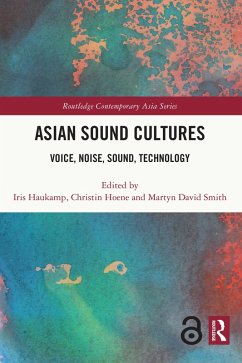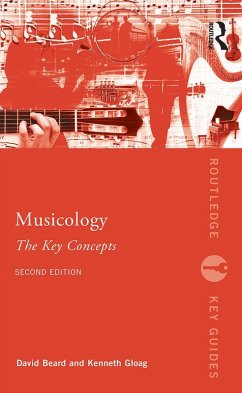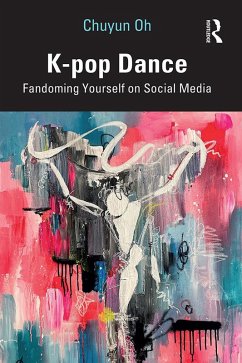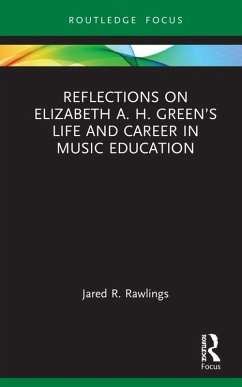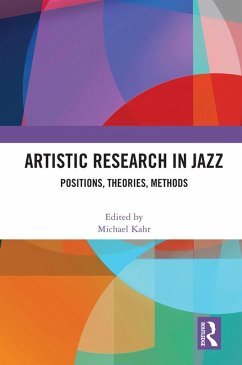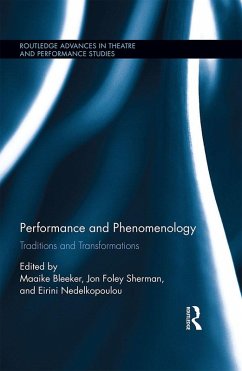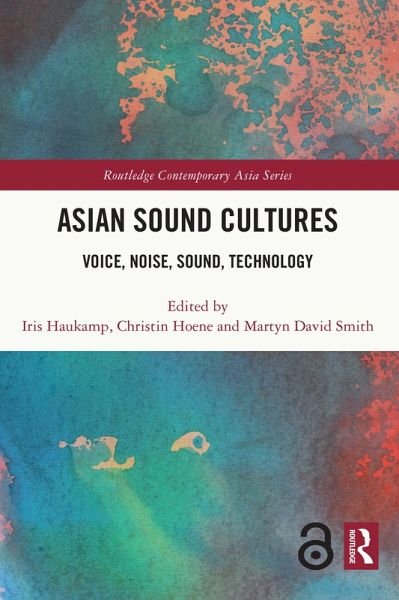
Asian Sound Cultures (eBook, ePUB)
Voice, Noise, Sound, Technology
Redaktion: Haukamp, Iris; Smith, Martyn; Hoene, Christin
Versandkostenfrei!
Sofort per Download lieferbar
39,95 €
inkl. MwSt.
Weitere Ausgaben:

PAYBACK Punkte
20 °P sammeln!
This book examines the meanings, uses, and agency of voice, noise, sound, and sound technologies across Asia.Including a series of wide-ranging and interdisciplinary case studies, the book reveals sound as central to the experience of modernity in Asia and as essential to the understanding of the historical processes of cultural, social, political, and economic transformation throughout the long twentieth century. Presenting a broad range of topics - from the changing sounds of the Kyoto kimono making industry to radio in late colonial India - the book explores how the study of Asian sound cul...
This book examines the meanings, uses, and agency of voice, noise, sound, and sound technologies across Asia.
Including a series of wide-ranging and interdisciplinary case studies, the book reveals sound as central to the experience of modernity in Asia and as essential to the understanding of the historical processes of cultural, social, political, and economic transformation throughout the long twentieth century. Presenting a broad range of topics - from the changing sounds of the Kyoto kimono making industry to radio in late colonial India - the book explores how the study of Asian sound cultures offers greater insight into historical accounts of local and global transformation.
Challenging us to rethink and reassemble important categories in sound studies, this book will be a vital resource for students and scholars of sound studies, Asian studies, history, postcolonial studies, and media studies.
Including a series of wide-ranging and interdisciplinary case studies, the book reveals sound as central to the experience of modernity in Asia and as essential to the understanding of the historical processes of cultural, social, political, and economic transformation throughout the long twentieth century. Presenting a broad range of topics - from the changing sounds of the Kyoto kimono making industry to radio in late colonial India - the book explores how the study of Asian sound cultures offers greater insight into historical accounts of local and global transformation.
Challenging us to rethink and reassemble important categories in sound studies, this book will be a vital resource for students and scholars of sound studies, Asian studies, history, postcolonial studies, and media studies.
Dieser Download kann aus rechtlichen Gründen nur mit Rechnungsadresse in A, B, BG, CY, CZ, D, DK, EW, E, FIN, F, GR, HR, H, IRL, I, LT, L, LR, M, NL, PL, P, R, S, SLO, SK ausgeliefert werden.




